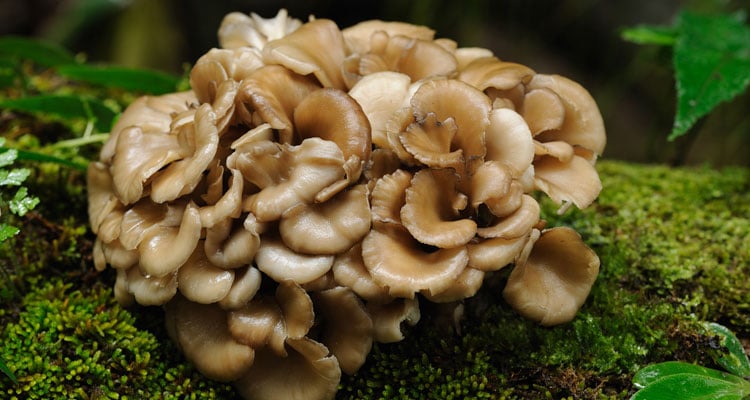
Can you feel the chill in the air? Winter is right around the corner, and that means our immune system is kicking into defense mode. Colder weather impacts our immune function in specific ways, and taking steps to boost your body’s natural immunity can make a huge difference in your wellbeing. These ten tips can help you fend off the season’s strongest assailants.
Why Does Winter Make Us Sick?
Is it true that we get sick more often during the winter? Depending on where you live, this can be true for a variety of environmental reasons. Integrative doctors agree that Vitamin D, a powerful antioxidant made in your skin when activated by sunshine, helps defend the body from “foreign, invading organisms, promoting protective immunity.” [1]
The further you move north or south from the equator, the less direct the sun shines onto your skin. As the earth revolves around the sun on its tilted axis, these differences become more pronounced during different seasons. As a result, those living furthest away from the equator tend to have the lowest levels of Vitamin D, and this disparity worsens in the winter months.
Low Temperatures Equal Happy Germs
Our immune systems are at their lowest fighting strength during the winter months, and many germs are especially prolific when temperatures dip. Plus, breathing cold air constricts our nasal blood vessels to conserve body heat, making it more challenging for white blood cells to reach the mucous membranes in the nose to fight off invaders.
With the bad guys reproducing at a rapid rate and our defense mechanisms strained, the cold weather certainly isn’t doing us any favors. Supplementing with Vitamin D in the winter is just one way to bolster our forces.

Dark Nights, Dark Moods
Physical health isn’t the only thing to be concerned about during the winter. Mental wellbeing should also be a priority, as seasonal blues and low moods can result from lessened sunlight exposure.
Low Vitamin D levels mean lower serotonin production, and your brain doesn’t deliver “happy” messages as frequently. A lack of sunlight also contributes to excess melatonin production in the body, which can exacerbate feelings of sluggishness.
Tips to Boost Immune Function
We can’t prevent winter from returning each year, but we can take action to prepare ourselves for continued health and wellness during those dark, cold months. These tips are appropriate for the whole year, but take some time to create healthy habits now, when they matter most.
- Sleep well. Get 7-9 hours nightly, so you can produce and circulate cytokines and T-cells, which fight off foreign invaders in the body.
- Exercise moderately and regularly. Don’t go overboard; too much physical demand can strain the body’s ability to recharge and regenerate. Moderate routines like yoga, walking, and swimming can help promote healthy circulation and muscle strength.
- Eat right. Immune-boosting foods include garlic, ginger, citrus fruits, broccoli, and spinach. Avoid depleting foods like processed sugars, baked goods, and fast food, which tax the metabolic process and cause functions to be sluggish.
- Build gut health. In addition to eating real, whole fresh or fermented foods, target supplements like probiotics can promote a strong, healthy gut.
- Mitigate adrenal stress. Stressed out adrenal glands don’t release the appropriate amounts of cortisol into the bloodstream. Your immunity suffers when inflammatory responses are not well managed. Stress reduction techniques like deep breathing, meditation, and work-life balance make a difference.
- Quit smoking. Nicotine is an immuno-supressent, “impairing the ability of neutrophils to kill pathogens.” It’s never too late to quit and reap the benefits.
- Reduce alcohol consumption. Studies show that drinking alcohol puts people at higher risk for contracting infections of all types. While a glass of red wine a few nights per week might be protective for the cardiovascular system, moderation is key.
- Test annually. Your integrative or functional medicine doctor can help determine which tests are right for you. Blood tests can show deficiencies like Vitamin D, B6, and iron, all of which impact immune function.
- Consider alternative therapies. Studies show both ancient traditions like acupuncture and newer technologies like light therapy can help balance immune function.
- Supplement accordingly. Talk with your integrative doctor, nutritionist, or functional medicine provider to determine whether adding immune-supportive minerals like zinc, selenium, and iron, or Vitamins B6, B12, C, or D to your supplement routine would be appropriate.
Winter is Coming
Prepare your body and mind for a restful, restorative winter, as nature intended. Many traditions around the world and throughout history have encouraged the concept of taking it easy and hunkering down for the winter. Hygge, the Danish concept comprising all of these comforting behaviors, has recently grown in popularity around the world.
Consider both your physical needs and your mental-emotional needs as the temperatures drop and the days get shorter. With cold air and a lack of sunshine, it’s crucial to take preventative actions to bolster your immune function before seasonal invaders begin their onslaught.
From improving your diet and exercise routines to supplementing with Vitamin D and zinc, these top ten tips will help make your winter more bearable.
[1] Aranow C. Vitamin D and the immune system. J Investig Med. 2011 Aug;59(6):881-6. doi: 10.2310/JIM.0b013e31821b8755. PMID: 21527855; PMCID: PMC3166406.
[2] https://www.news-medical.net/health/Effects-of-Tobacco-on-the-Immune-System.aspx











.jpg)






